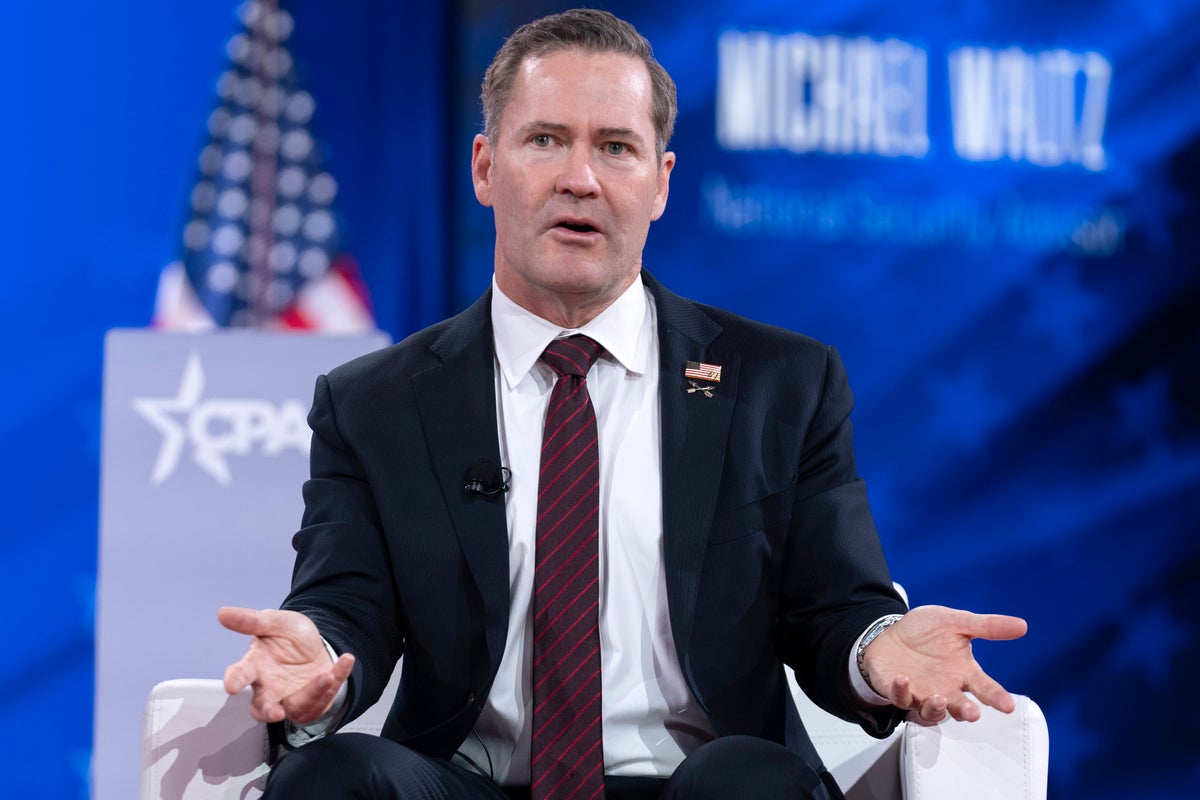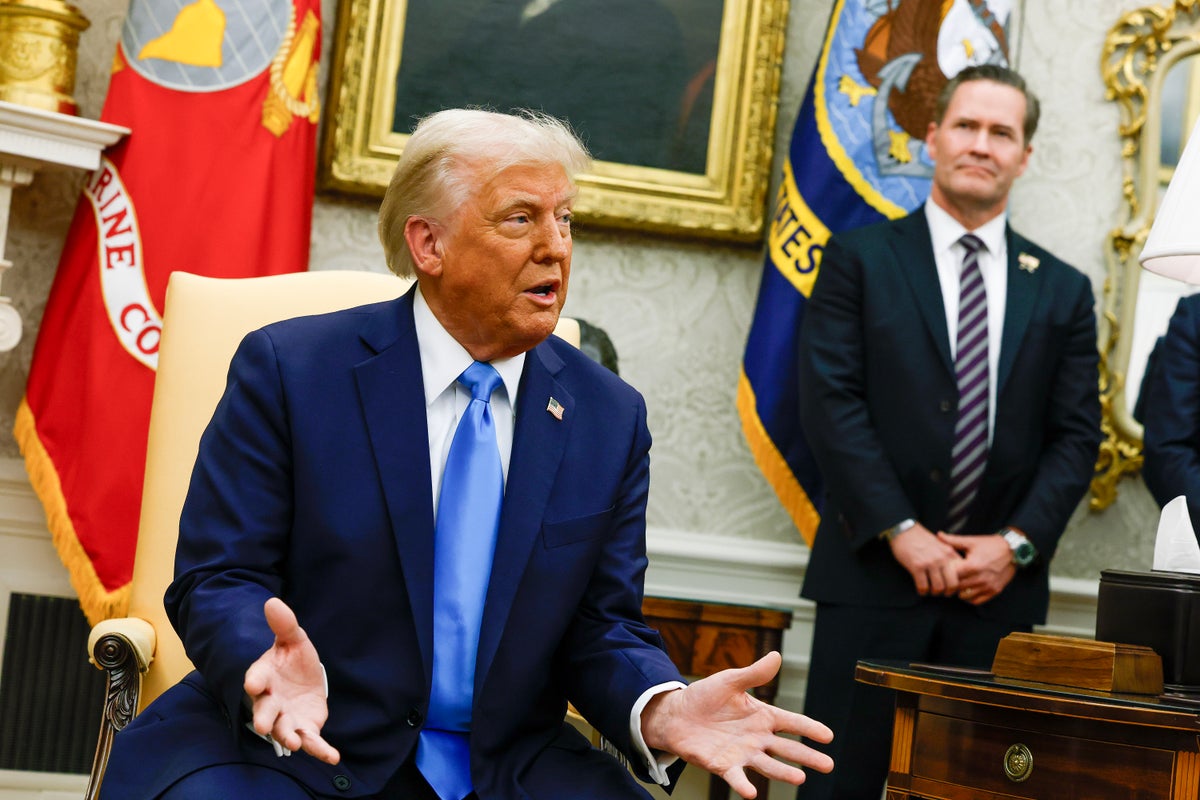The UK is not seeking trade deals based on a “post-imperial delusion”, the Government has said, as it faced calls to finalise agreements with the European Union and the United States.
Trade minister Douglas Alexander said the Government was using data to determine what partnerships to pursue, as he said the Conservative Party’s implementation had “buried” some businesses in red tape.
MPs heard more than two billion pieces of paperwork had been added to UK exporters.
Meanwhile, Business Secretary Jonathan Reynolds said the Government was not going to pick one trade partner over the other, as he said the UK was “pragmatic” about its national interest.
Mr Alexander was urged by Liberal Democrat MP James MacCleary (Lewes) to make the most of the UK’s summit with the EU on May 19, and said it would be a “missed opportunity” if progress was not made.
Mr MacCleary said: “This is a moment for Britain to show it’s serious about forging a renewed and reinvigorated relationship with the EU, still our largest trading partner.
“If the forthcoming summit ends up as another in a long line of missed opportunities, there’s a real danger that Brussels is just going to move on to other priorities. So, can ministers tell me what concrete measures businesses can expect to come out of the summit to cut red tape and the barriers holding back British growth and prosperity?”
Mr Alexander told Mr MacCleary the Government was looking to rebuild relationships across Europe, and added the Government was looking to find areas which are “transparently win-win”.
He added: “I’d be inclined to wait for the summit before declaiming it as a disaster.”
A Downing Street spokesperson said on Thursday that the Government can “do better than the botched” deal drawn up by the last government.
The Number 10 spokesman said: “We have made it very clear we’ll be defined by putting more money into the pockets of working people and providing Britain with long term security and stability.”
He added: “We’re not rejoining the European Union, we won’t reopen the arguments of the past, and as the Prime Minister has said himself, a better partnership with the EU can unlock benefits for British people and businesses, reducing trade barriers, driving growth and keeping us safe in an increasingly dangerous world.”
Liberal Democrat trade spokesman Clive Jones said new regulations that businesses were required to follow since Brexit had produced enough paperwork to wrap around the world 15 billion times.
Mr Alexander replied: “We are consciously pursuing a trade agenda based on data, not post-imperial delusion, and regrettably the data is pretty devastating in terms of the damage that was done by the way that Brexit was implemented by our predecessors.”
He said an Aston University study showed small and medium-sized exporting businesses had been “buried under red tape” since Brexit.
MPs later heard reports that the US were now considering the UK as a “second-order priority” in trade deal talks.
It followed a Guardian report on Tuesday, which cited sources who said Britain was now placed in the second or third level of urgency, with South Korea now considered more appealing to the White House.
MPs heard that the US is the UK’s largest single country trading partner, with total trade worth £315 billion in 2024. It is equivalent to 18% of total UK trade. More than one million Americans work for UK-owned companies and vice versa, Mr Reynolds said.
Tory shadow business minister Dame Harriett Baldwin said: “With the tariff clock ticking I am sure that the Secretary of State recognises that the US deal is surely the most urgent with the many UK jobs at risk and yet we heard recently from the Chancellor, when she was in the States, that her bigger priority is discussions with the EU where we already have zero tariffs and zero quotas.”
Mr Reynolds said: “The entirety of this Government has been clear – this is not about seeking to pick between one market or another. Both are absolutely fundamental.
“The Chancellor’s comments specifically relate to the fact that it’s simply true that our UK-EU trade is a much greater quantum than UK-US trade.”
Conservative MP Blake Stephenson (Mid Bedfordshire) said: “With Trump now reported to have made the UK a second order priority to Asia, and the UK possibly on the verge of giving up its Brexit freedoms in favour of EU alignment, how confident is (he) of achieving a comprehensive free trade deal with the US in both goods and services?”
Mr Reynolds said he wanted to “push back on anyone attempting to put the case that the decisions that we make have to be based on either the EU, or the US, or any other partner being our principal partner.
He added: “The role for the UK is to position ourselves in this very challenging world with a genuine, strategic advantage because we do things that improve our trading relationship with the EU, we secure this US deal, we secure the deals with India, with the Gulf and other key markets, and are pragmatic about where the UK’s national interest lies.
“I’m absolutely confident that it’s possible and desirable.”




